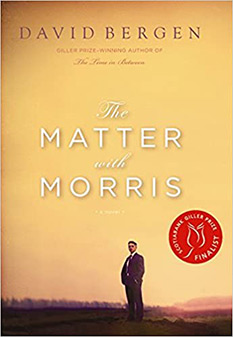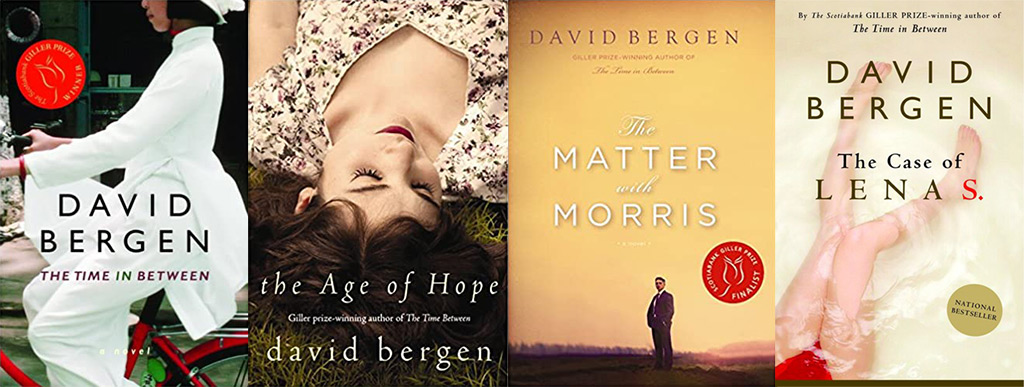The Matter With Morris, David Bergen (Toronto: HarperCollins, 2010)

This offering from David Bergen conforms more closely to my expectations of a work from a middle-aged male novelist. It is the story of a middle-aged male writer (whose experience may or may not differ that much from the author’s experience of life) who has passed his adult life being a little too sure of himself and now, in mid-life, comes apart at the seams through a series of tragicomic humiliations. One could easily imagine the principal character here, Morris Schutt, meeting Barney Panovsky in a hotel bar and, together, the two of them putting a serious dent in a bottle of McCallan. This is the sort of novel David Gilmour could get behind. Actually, this last remark could be construed as an insult and for that I apologize. Where Gilmour has only ever written one character, Bergen writes with far more imagination and range.
Lurking behind everything here, and possibly motivating all Morris’s decisions, good, bad, and indifferent is the fact that his son was killed by friendly fire while serving in Afghanistan. His marriage to Lucille, a psychiatrist, has not endured the shock. His oldest daughter denies him access to his young grandson. And he can’t be sure, but he may have alienated his younger daughter by repeatedly leaving phone messages for her boyfriend/partner, a university professor who is much older than her. He begins to enjoy the regular ministrations of an escort service, but that falls flat when the escort who appears at his door is his late son’s friend. He liquidates all his financial assets and stores the cash first in a home safe and then under his mattress. And he maintains a correspondence with the wife of a Minneapolis dairy farmer. They have an erotically charged encounter, but like most everything in Morris’s life, it goes nowhere. Bergen never states explicitly that all these behaviours stem from Morris’s grief, but we have our suspicions. This is more than a mid-life crisis.
During a similarly low point in my own life, my psychiatrist once cautioned that, of all the bad decisions I could take, there is only one I could never recover from. Bergen’s novel stands perhaps as an exemplum of that claim. For all his bungling, there is nothing he takes so far that it casts the possibility of renewal beyond the pale. At the same time, those around him are sensible enough and compassionate enough that they won’t push him Lear-like onto the heath, or at least not for too long.
I would take The Matter With Morris any day over any of Gilmour’s books. Even with one hand tied behind its back.
